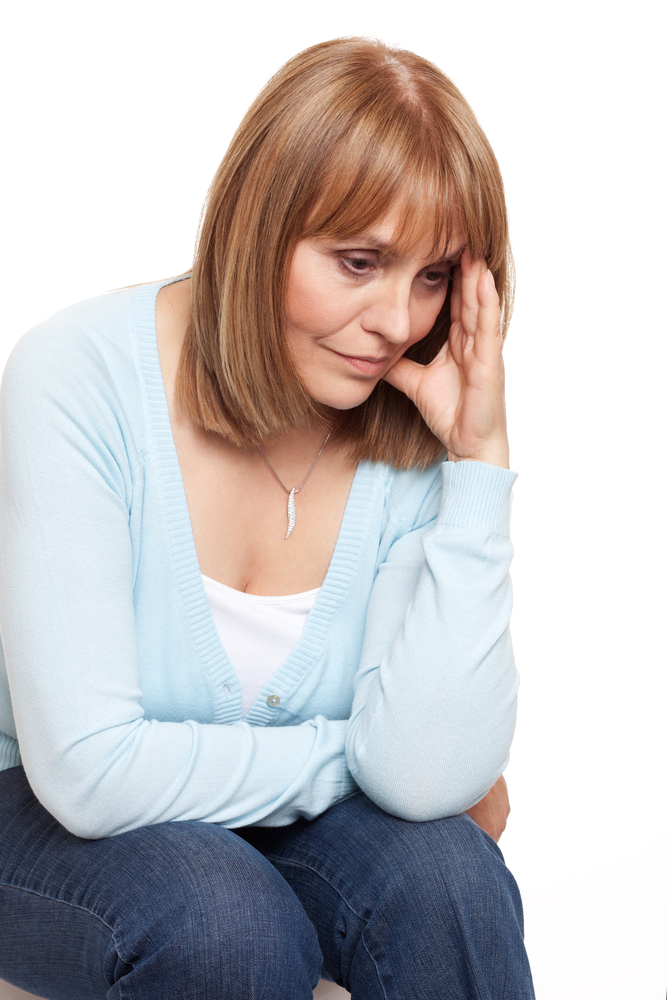Eating a healthy, balanced diet and losing any excess weight can help ease some of the symptoms of the menopause, such as tiredness and hot flushes, and reduce your risk of heart and bone problems.
It’s important to eat a wide variety of foods, in the right amounts and proportions, to get to and maintain a healthy body weight. Following the Eatwell Guide can help you achieve this.
Include foods that are good for the bones
After going through the menopause, your bones will begin to lose density. This can make them weaker over time, so it is important to make sure you’re getting enough calcium and vitamin D, which are vital for bone health.
Sources of calcium include:
dairy foods, such as milk, cheese and yoghurt (lower-fat versions have the same amount of calcium)
soya products with added calcium
leafy green vegetables (but not spinach)
some nuts and seeds, including almonds, brazil nuts and sesame seeds
bread and anything made with fortified flour
fish where you eat the bones, such as tinned sardines
Sources of vitamin D include:
sunlight (during spring and summer only)
oily fish (for example, salmon, mackerel, herring, sardines or pilchards)
egg yolks and red meat
liver
products with added vitamin D, such as fortified breakfast cereals
During autumn and winter, you should think about taking a daily vitamin D supplement to make sure you’re getting enough. You can buy these from pharmacies or most large supermarkets.
If you’re concerned about your vitamin D levels, you can speak to your GP about having a blood test to check them. In some cases, you may be prescribed a higher-dose vitamin D supplement.
Read more about bone health during the menopause.
Aim for at least 5 portions of fruit and veg a day
Fruit and vegetables are a vital source of vitamins and minerals. It’s advised that we eat at least 5 portions each day.
Evidence shows that people who eat at least 5 A Day have a lower risk of heart disease, stroke and some cancers. Surveys have shown that most women aged 50 to 64 eat less than this.
Getting your 5 A Day isn’t as hard as it sounds:
having a sliced banana with your morning cereal is a quick way to get the first portion
swap your mid-morning biscuit for a large slice of pineapple or melon, or 5 cherry tomatoes, for your second portion
add a side salad to your lunch for your third portion
have 3 heaped tablespoons of cooked vegetables or pulses with dinner to get your fourth
snack on an apple, pear or 2 tangerines in the evening to get your fifth portion
Read more about what counts towards your 5 A Day.
Base your meals on starchy foods
Starchy foods should make up just over a third of our diet.
Potatoes, for example, are a great source of starch as well as fibre. Leave the skins on where possible to get more of fibre.
Try to choose wholegrain or wholemeal varieties of starchy foods, such as brown rice, wholewheat pasta and wholemeal bread. They contain more fibre, and usually more vitamins and minerals than white varieties.
Read more about starchy foods.
Why protein is important
Protein plays a vital role in helping the body recover from illness and infections.
Fish is good source of protein, and also contains many vitamins and minerals. Oily fish, such as salmon, mackerel and sardines, are rich in omega-3 fatty acids.
You should aim to eat at least 2 portions of fish a week, including 1 portion of oily fish. It can be fresh, frozen or canned, but remember that canned and smoked fish can often be high in salt. Choose varieties sold in oil rather than brine.
Meat is another good source of protein. It’s also one of the main dietary sources of vitamin B12, and rich in other vitamins and minerals.
Pick lean cuts of meat and skinless poultry whenever possible to reduce fat. Also, use healthier cooking methods – for example, grilling and steaming rather than frying.
Learn more about meat in your diet.
Eggs, pulses, beans, nuts and tofu are also great sources of protein. Plain, unsalted nuts are high in fibre and protein, but they also contain a lot of unsaturated fats. This means they’re high in calories, so eat them in moderation.
Learn more about eggs in your diet.
Cut down on fats, sugar and salt
Having some fat in your diet is essential, but too much saturated fat can raise the amount of cholesterol in your blood, increasing your risk of developing heart disease. This is why it’s important to get most of your fat from small amounts of unsaturated oils and spreads.
Too much salt in your diet can raise your blood pressure, which increases your risk of heart disease and stroke.
Regularly consuming food and drink that’s high in sugar increases your risk of obesity and tooth decay.
Find out more about cutting down on the amount of saturated fat, salt and sugar in your diet.
For more information on how to eat well and maintain a healthy weight, read our 8 tips for healthy eating and check out our healthy recipes section.




